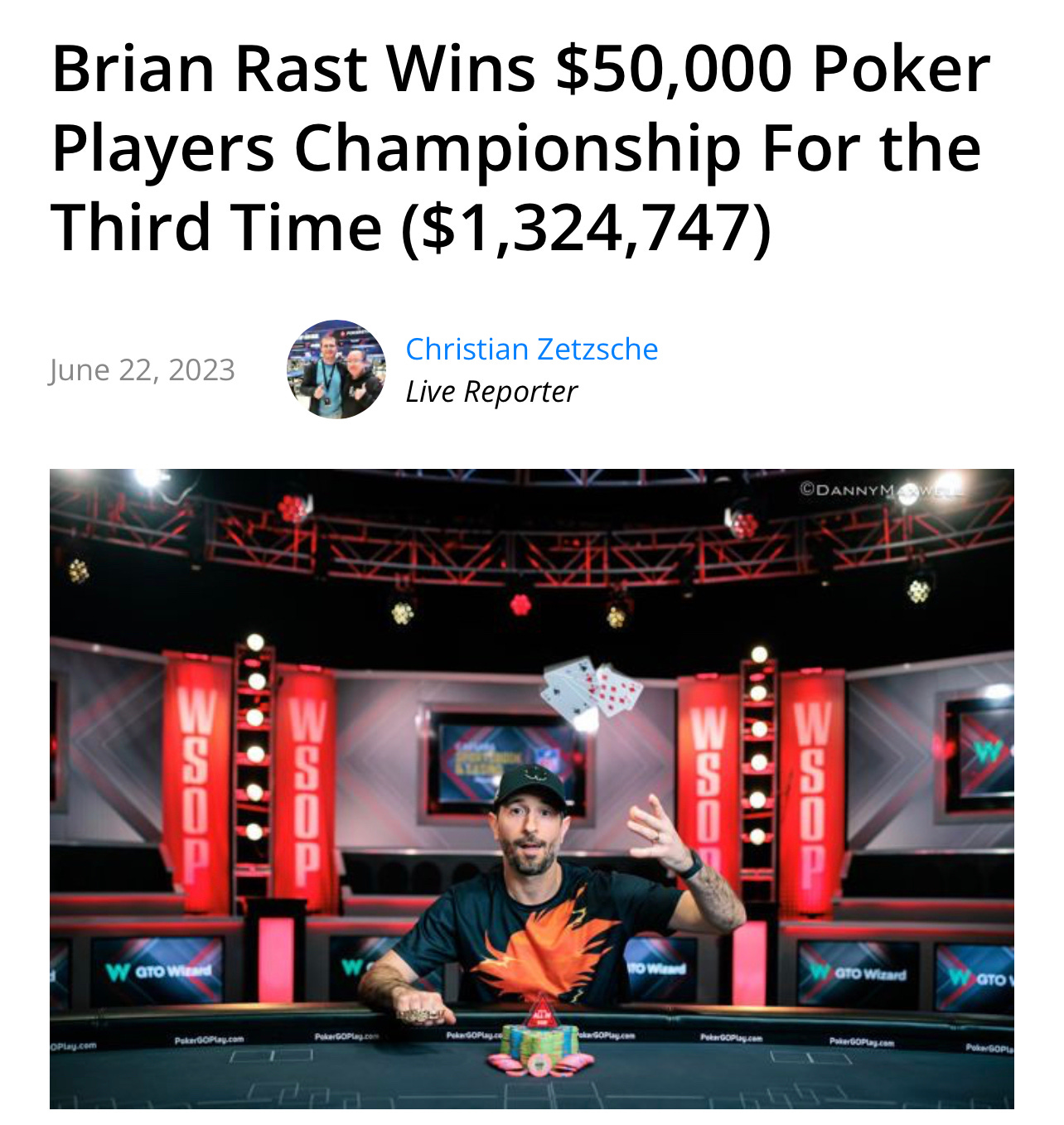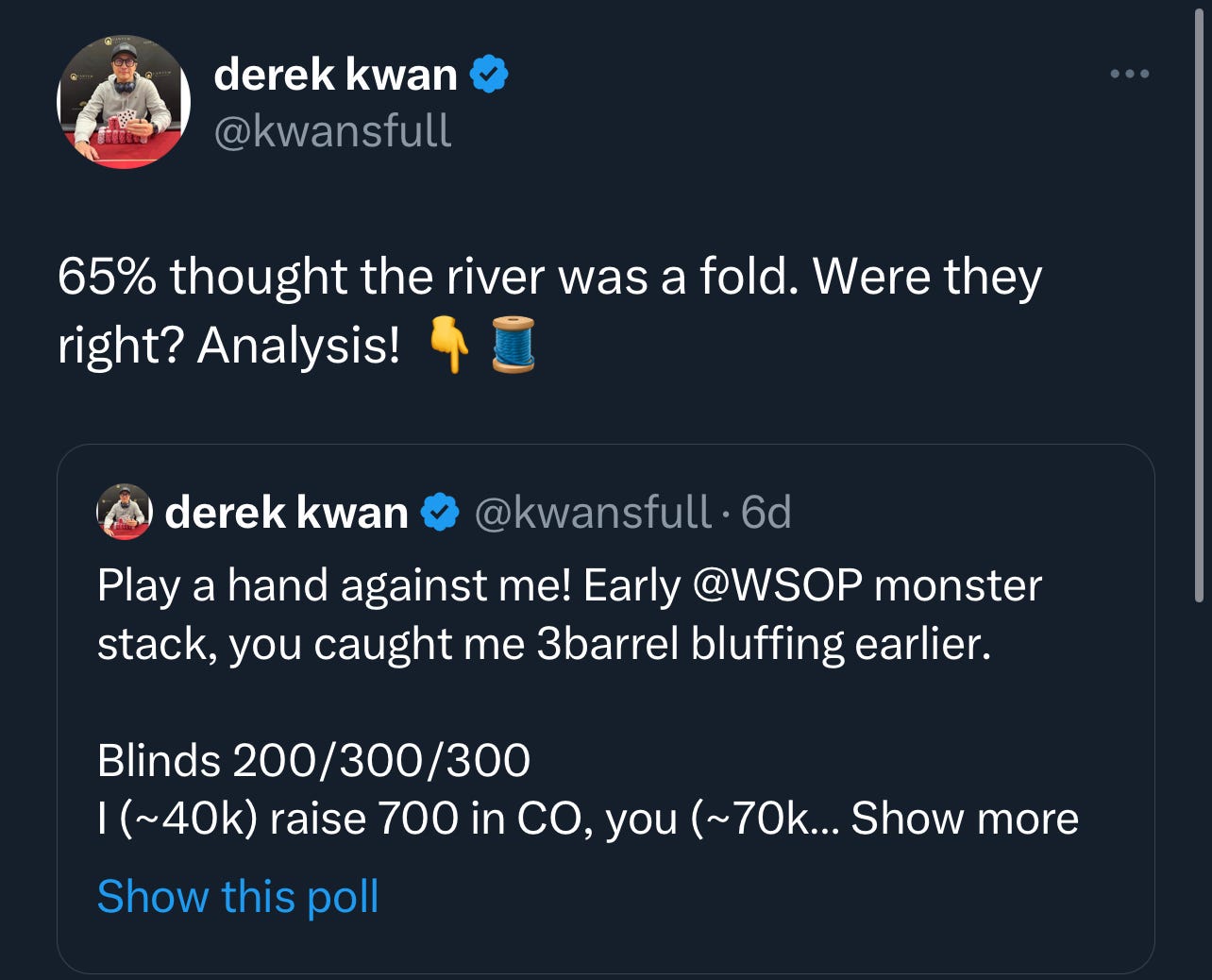How to Calculate ICM
To calculate ICM, you take into account the payout structure of the tournament, the current size of the blinds, and the stacks of the remaining players.
The principle of ICM is based on the fact that not all chips in a tournament have the same value. For instance, going from 1,000 to 2,000 chips when you already have 10,000 isn't the same as doubling your stack from 1,000 to 2,000 when you started with only 1,000. The first thousand chips you earn in a tournament are the most critical, and each chip's worth decreases as your stack size increases.
The actual calculation of ICM is complex and involves quite a bit of math. It considers the payout structure and the chip stacks of all remaining players in the tournament.
To illustrate the concept, imagine a simple scenario where there are only three players left in a tournament. The total prize pool is $1,000 - $500 for the first, $300 for the second, and $200 for the third. Each player has an equal number of chips.
According to ICM, each player's equity is equal to their expected payout if the tournament ended immediately. In this case, since each player has an equal chance of finishing in each position, each player's equity would be calculated as follows:
1st place equity: $500 * (1/3) = $166.67
2nd place equity: $300 * (1/3) = $100
3rd place equity: $200 * (1/3) = $66.67
Adding these up, each player's total equity would be $333.33, or one-third of the total prize pool.
In reality, players will rarely have equal chip stacks, and there will often be more than three players remaining. Calculating ICM in these scenarios is much more complex and generally requires the use of a specialized ICM calculator or poker software.
Basic Tips for Using ICM in Poker Tournaments
Avoid unnecessary risks: When nearing the bubble, you should avoid unnecessary risks, even if you have a big chip stack. According to ICM, a big chip stack's value in terms of real money doesn't increase linearly with the number of chips. This is because you cannot cash out your chips; you have to win the tournament or reach the payout positions to make money.
Pay attention to the payout structure: The ICM calculations depend heavily on the payout structure of the tournament. If it's a winner-takes-all tournament, the ICM will not be useful. However, in a tournament where the top 10% or 20% of players get paid, ICM becomes vital.
Consider the stacks of other players: If other players have short stacks, it may be in your best interest to let them bust out instead of risking your chips. According to ICM, you gain money whenever a player is eliminated, regardless of whether you're the one who busted them.
Understanding and effectively using ICM in poker tournaments is a complex task, and it requires a lot of practice. But once you get the hang of it, it can become a powerful tool in your poker arsenal
Some popular options include ICMIZER and HoldemResources, which come with tutorials to guide you along the way.
There we have it! A beginner’s guide to the often complex but vital world of ICM in poker. The key takeaway? Your chips aren't just chips; they're your ticket to making better decisions and potentially winning more in poker tournaments. So next time you're in a poker tournament, remember, every chip counts!
And did you know that GTO Wizard has ICM scenarios that you can analyze? Try it for 10% off with this link!





